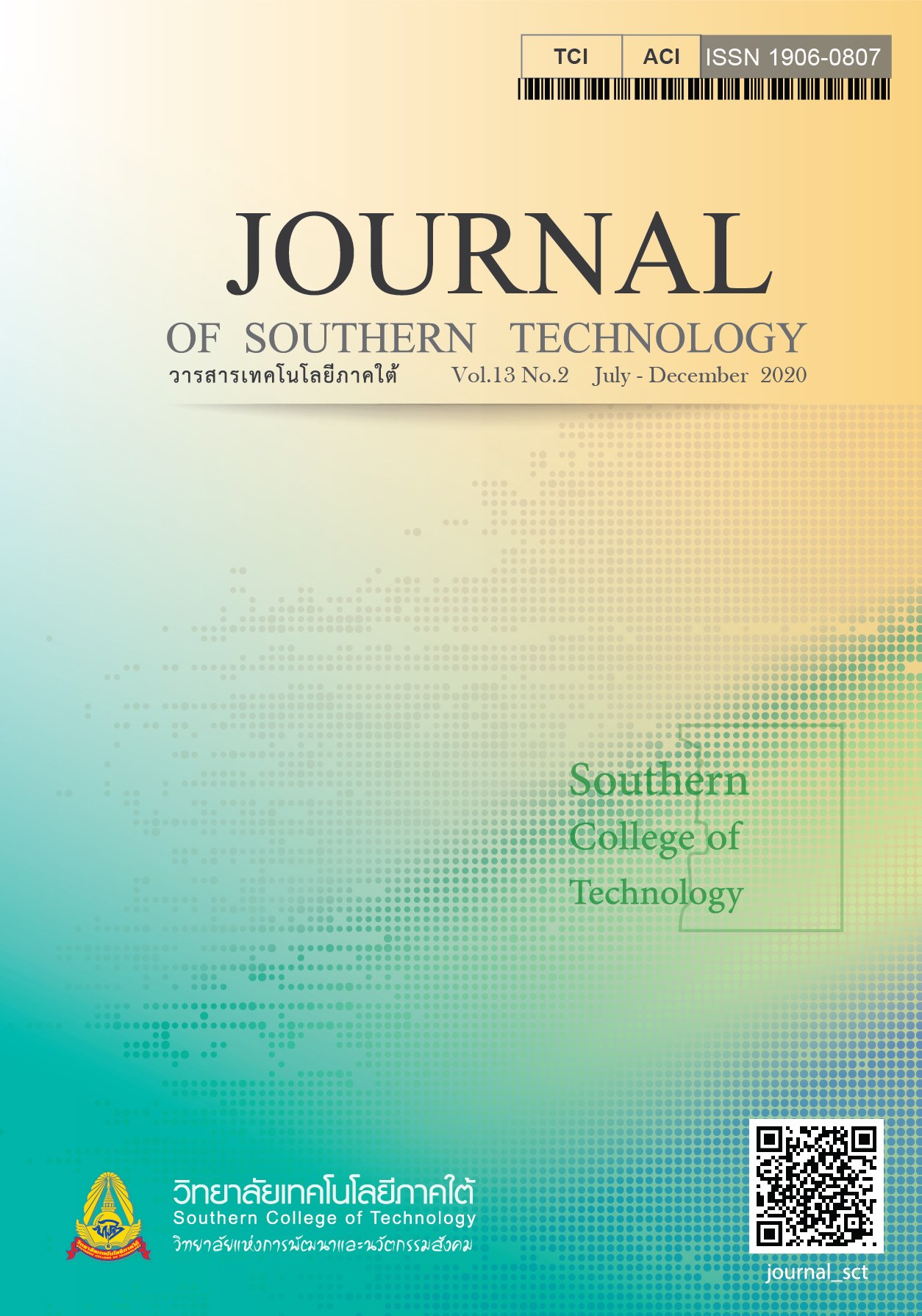The Development of an Educational Game System to Enhance Classroom Learning
Main Article Content
Abstract
The objectives of this research were to develop a system that supports classroom interactions between the instructor and learners called “The Knowing Game”, investigate students’ achievement after being taught with the game and their satisfaction of using it. The population of this study was 40 instructors and third year students in Business Computer Program in Multimedia Technology for Business course at Suan Dusit University (Trang Center). A purposive sampling was used to select the sample. The system was developed with HTML, PHP, jQuery, JavaScript, CSS, AJAX. Database management was conducted with MySQL. The academic achievement of the sample students was tested for both pretest and posttest terms. A period of study was 5 weeks. In addition, the satisfaction scale was used to measure the satisfaction of instructors and students with “The Knowing Game”. Data were analyzed through statistics including mean, standard deviation, percentage and t-test. The results of this study indicated that “The Knowing Game” was developed according to gamification concept. This system is designed to enable game-based instruction with scoring criteria to stimulate learners’ motivation and increase effort for competition and obtaining rewards. The main activities were 1) Q & A board and comments, 2) Quick Questions or Questions for Voting, and 3) Q & A Activity from Lesson. Based on the study results of learning achievement, the post-learning scores were higher than pre-learning scores with a statistically significant difference level of .01. From the evaluating system performance, by the expert via Black Box Testing techniques, it was found that the overall system performance was at a high level. In addition, the overall results of satisfaction assessment of the system users can be concluded that the instructors and the learners were satisfied at a high level. Therefore, according to the study results, the instructors could use the communication tools of the learners beneficially to organize teaching and learning activities in the form of game through “The Knowing Game” system which can increase motivation and helps improve learning of the leaners effectively.
Article Details
-
Authors must agree to the journal publication rules and allow the editors to edit the manuscripts for publication.
-
Author’s right belongs to the author but Journal of Southern Technology holds the right of first publication and thus allow readers to use the article for the purpose of education but not commercial.
References
Arayakul, A. (2017). A Development of Motion Graphic Application Media using Gamification Learning Strategy on the Topic “French Communication in Daily Life Travelling” (Master’s Thesis). King Mongkut's University of Technology North Bangkok. [in Thai]
Binbai, S., & Tanamai, S. (2014). Computer games with learning in digital age. Journal of Industrial Education, 5(1), 177-181. [in Thai]
Boontho, C. (2011). The Behavior and Influence of Playing Online Games of Rajamangala University of Technology Thanyaburi Undergraduate Students (Master’s Thesis). Rajamangala University of Technology Thanyaburi, Bangkok. [in Thai]
Chumphet, W. (2018). Development of Voice Information System for the Elderly. Journal of Information Science, 36(2), 36-57. [in Thai]
Jongmuenwai, B., Kongsrima, K., Prachai, S., Jabjone, S., & Suikraduang, A. (2018). Gamification for Learning. Journal of Project in Computer Science and Information Technology, 4(2), 34-43. [in Thai]
Kultawanich, K., & Rattanawongsa, R. (2016). A Comparison of the Opinion and Attitude Toward the Gamification Concept of Under- graduate Students. The 1st Conference on Research for Thai Education System (CRTES) (pp. 97-104). Bangkok: Mean Service Supply. [in Thai]
Lertbumroongchai, K. (2017). Gamification, The World of Learning is Driven by Games. Retrieved April 15, 2018, from http:// touchpoint.in.th/gamification [in Thai]
National Statistical Office of Thailand. (2017). The ITU Indicators from the 2017 Household Survey on the use of Information and Communication Technology. Retrieved September 20, 2018, from http://www. nso.go.th/sites/2014en/itu [in Thai]
Office of the Education Council in Minister of Education. (2017). National Scheme of Education B.E. 2560-2579 (2017-2036). Bangkok: Prig Whan Graphic. [in Thai]
Office of the Education Council in Minister of Education. (2009). Proposals for the Second Decade of Education Reform B.E. 2552-2561 (2009-2018). Bangkok: Prig Wan Graphic. [in Thai]
Office of the Permanent Secretary in Minister of Education. (2014). National Education Act B.E. 2542 (1999) and Amendments (Second National Education Act B.E. 2545 (2002) and Amendments (Third National Education Act B.E. 2553 (2010). Bangkok: The Book Publishing. [in Thai]
Office of the Permanent Secretary in Minister of Education. (2016). 12th National Education Strategy Act B.E. 2560-2564 (2017-2021). Bangkok: Bureau of Policy and Strategy in Office of the Permanent Secretary. [in Thai]
Ongiem, A., & Vichitvejpaisal, P. (2018). Validation of the Tests. Thai Journal of Anesthesiology, 44(1), 36-42. [in Thai]
Poondej, C., & Lerdpornkulrat, T. (2016). Learning Management with the Gamification Concept. Journal of Education Naresuan University, 18(3), 331-339. [in Thai]
Prisorn, W., & Jeerangsuwan, N. (2017). Encouraging Learners to Learn in the Generation Z by Applying the Gamification. Journal of Technical Education Development King Mongkut's University of Technology North Bangkok, 29(101), 13-22. [in Thai]
Sintapanon, S. (2010). Learning and Teaching Innovation for Youth Quality Development (2nd ed.). Bangkok: Technic Printing. [in Thai]
Wiangwalai, S. (2013). Learning Management. Bangkok: Odean Store. [in Thai]
Wongyotha, T., Songsriwitthaya, A., & Vachira- panang, K. (2016). Game Innovation for Supporting Learning in GEN 351: Modern Management & Leadership. The 6th STOU National Research Conference (pp. 1-9). Bangkok: Sukhothai Thammathirat Open University. [in Thai]

